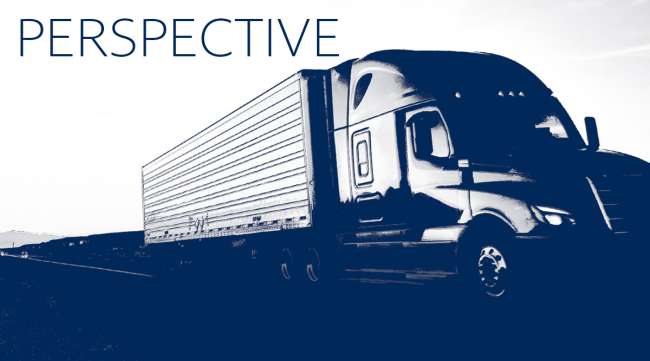CEO and Co-Founder, Take Command
Perspective: ICHRAs and How They Can Help Small Companies

[Stay on top of transportation news: Get TTNews in your inbox.]
Transportation companies can boost recruitment and retention by improving their benefits packages, but generous benefits are often prohibitively expensive. Health insurance coverage is at the top of that list, and as insurance costs continue to increase, transportation companies are left wondering how they can afford to add health benefits to already tight budgets.
Fortunately, a relatively new benefits option allows transportation companies to control their expenses by reimbursing drivers for health insurance rather than buying it for them. This is known as an individual coverage health reimbursement arrangement, or ICHRA.
With ICHRA, employees purchase the individual health plan of their choice from healthcare.gov or a state-based exchange and get reimbursed on their paycheck, tax free. Transportation companies can design an ICHRA program to reimburse a flat rate for premiums or both premiums and medical expenses. Companies can also advance the money so that the employee doesn’t have to pay out of pocket.
All these personalized options address the economic challenges faced by transportation companies while providing employees useful benefits.
Sized to Fit
For small independent transportation companies, keeping up with health insurance compliance and regulations without an HR department can be daunting. Also, group health plans can be a bad fit for some transportation companies: Not only are they expensive, but they don’t accommodate part-time workers and often impose challenging participation requirements.

Hooper
ICHRAs are an effective recruitment and retention tool for transportation companies looking to offer benefits for the first time. Owners of small transportation companies with lean teams can effectively outsource benefits with ICHRAs, often by simply setting a monthly reimbursement budget that works for them.
For larger transportation companies that are required by law to offer health insurance, ICHRAs represent an off-ramp from group health plans. While some companies may previously have faced steep renewal increases on their group plans — due to low participation rates and multiple locations — ICHRAs allow them to keep costs consistent.
In a group plan, employees typically share a risk pool with their co-workers. Your insurance costs depend on the collective health status and choices of your colleagues and their families. Even in large companies, the risk is spread across relatively few individuals: a single medical emergency or difficult diagnosis can drive up the cost of the group plan and affect everyone’s coverage the following year. If the employer cannot absorb the additional expense, it may have to reduce the level of available coverage or pass the financial burden on to employees. With ICHRA, an employee is now part of the country’s largest risk pool — the millions who buy health insurance on the individual market. An individual’s coverage and costs are based exclusively on the plan chosen and are unaffected by co-workers’ health issues. Separating benefits from employee health allows businesses to escape the unpredictable cost of group plan renewals, which can reach double-digit percentage increases.
Want more news? Listen to today's daily briefing above or go here for more info
With ICHRAs, companies do not have to bear more of the costs when premiums rise. Most companies do increase reimbursements each year, but these are discretionary decisions. Also, this benefits model makes it easy to offer insurance in separate locations without having to worry about participation rates.
Growth Curve
Most importantly, ICHRA caters to all employees — seasonal or part time, hourly or salaried. No one is excluded from being offered coverage, which means transportation companies can recruit with confidence for every position.
For these reasons, transportation companies have been early adopters of ICHRAs. Across the country, an estimated 500,000 people use ICHRA, according to NPR, and more than 21 million Americans purchase insurance on the individual market, according to CMS.gov. And the number of companies using ICHRAs increased by 29% from 2023 to 2024, according to the HRA Council’s Growth Trends report.
This model allows carriers to take care of drivers, control costs and focus on the job at hand — safe, on-time deliveries. The industry needs new drivers. Affordable, quality benefits can help achieve that goal.
Jack Hooper is the CEO and co-founder of Take Command, a Dallas-based SaaS company that offers health reimbursement arrangement administration.




